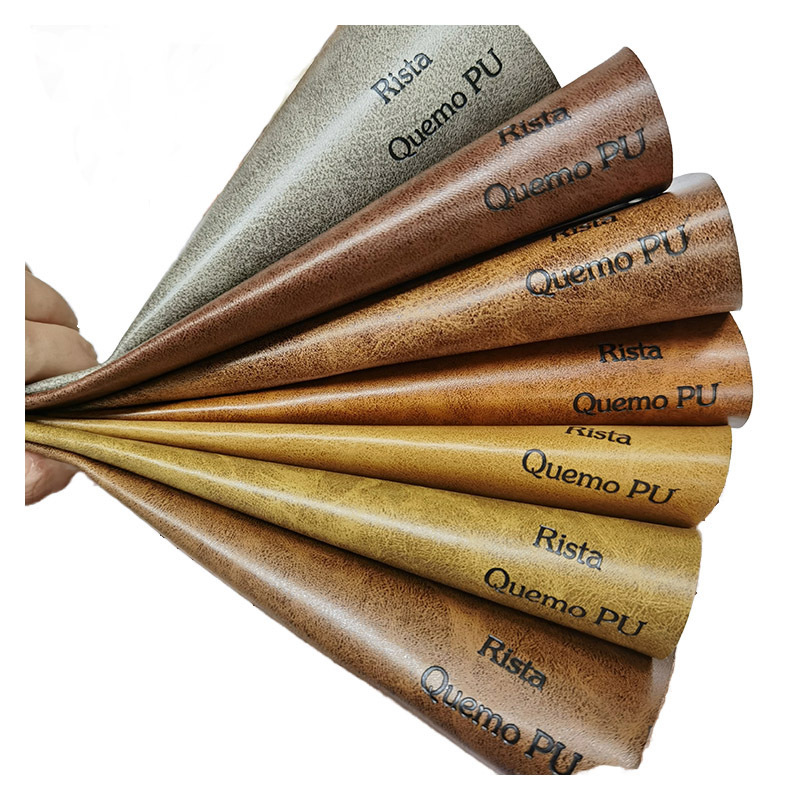Exploring the Benefits of PU Synthetic Leather for Jeans Labels
Apr 05,2025

PU synthetic leather, or polyurethane synthetic leather, is a versatile and innovative material that replicates the appearance and texture of genuine leather while offering numerous benefits. One significant advantage is its durability; PU synthetic leather is resistant to wear and tear, making it an ideal candidate for jeans labels that must withstand regular washing and wearing. Unlike natural leather, PU leather does not crack or fade easily, ensuring that the labels maintain their aesthetic appeal over time.
Another notable characteristic of PU synthetic leather is its flexibility. This material can be produced in various thicknesses and finishes, allowing designers to customize the look and feel of their jeans labels. The adaptability of PU synthetic leather enables brands to experiment with different textures, colors, and even patterns, thus enhancing the overall visual appeal of their products. Whether it’s a glossy finish for a modern look or a matte texture for a more understated approach, the versatility of PU leather caters to diverse consumer preferences.
Moreover, PU synthetic leather is easier to work with during the manufacturing process. It can be easily cut, stitched, and embossed, allowing for intricate designs that can enhance brand identity. This ease of use is particularly beneficial for companies looking to produce labels in large quantities without compromising on quality or design intricacies. The ability to add intricate logos or unique design elements can significantly improve brand recognition in a competitive market.
From an environmental standpoint, PU synthetic leather is considered a more sustainable option compared to traditional leather. The production process of PU leather often requires less energy and water, and it generates fewer waste products. Additionally, as awareness grows regarding ethical sourcing and animal welfare, more brands are opting for synthetic alternatives that align with eco-friendly practices. This shift towards sustainability can resonate well with consumers who prioritize conscious shopping habits.
In summary, utilizing PU synthetic leather for jeans labels presents a variety of advantages, including durability, flexibility, ease of use, and environmental benefits. As the fashion industry continues to evolve, the demand for innovative materials like PU synthetic leather is likely to increase, providing brands with opportunities to enhance their product offerings while appealing to a more discerning consumer base. Whether you’re a small designer or a large manufacturer, investing in PU synthetic leather for your jeans labels could be a strategic move towards success in today’s market.
Another notable characteristic of PU synthetic leather is its flexibility. This material can be produced in various thicknesses and finishes, allowing designers to customize the look and feel of their jeans labels. The adaptability of PU synthetic leather enables brands to experiment with different textures, colors, and even patterns, thus enhancing the overall visual appeal of their products. Whether it’s a glossy finish for a modern look or a matte texture for a more understated approach, the versatility of PU leather caters to diverse consumer preferences.
Moreover, PU synthetic leather is easier to work with during the manufacturing process. It can be easily cut, stitched, and embossed, allowing for intricate designs that can enhance brand identity. This ease of use is particularly beneficial for companies looking to produce labels in large quantities without compromising on quality or design intricacies. The ability to add intricate logos or unique design elements can significantly improve brand recognition in a competitive market.
From an environmental standpoint, PU synthetic leather is considered a more sustainable option compared to traditional leather. The production process of PU leather often requires less energy and water, and it generates fewer waste products. Additionally, as awareness grows regarding ethical sourcing and animal welfare, more brands are opting for synthetic alternatives that align with eco-friendly practices. This shift towards sustainability can resonate well with consumers who prioritize conscious shopping habits.
In summary, utilizing PU synthetic leather for jeans labels presents a variety of advantages, including durability, flexibility, ease of use, and environmental benefits. As the fashion industry continues to evolve, the demand for innovative materials like PU synthetic leather is likely to increase, providing brands with opportunities to enhance their product offerings while appealing to a more discerning consumer base. Whether you’re a small designer or a large manufacturer, investing in PU synthetic leather for your jeans labels could be a strategic move towards success in today’s market.






